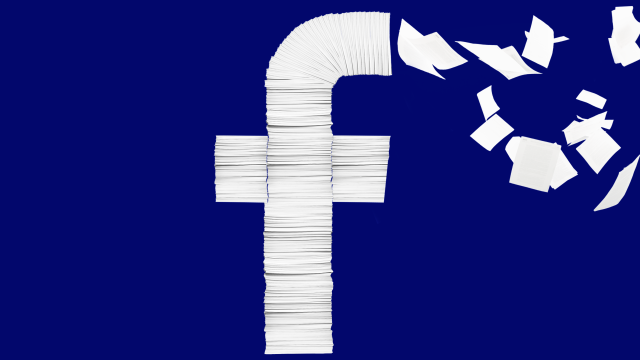“The internet not only connects us to our friends, families and communities, but it is also the foundation of the global knowledge economy.” – Mark Zuckerberg, Aug. 21, 2013.
“Facebook has been a useful instrument for those seeking to spread hate, in a context where, for most users, Facebook is the Internet.” – United Nations Human Rights Council, Sept. 12, 2018.
In one of Silicon Valley’s largest leaks, a former Facebook product manager slipped financial regulators a cache of files containing thousands of company chats, internal research, and private memos. The hope was that investigators would be able to reach no other conclusion; that in many crucial ways, the situation inside Facebook was far more dire than executives had let on to investors.
The documents, captured by whistleblower Frances Haugen and first reported by the Wall Street Journal, were also handed to members of a Senate Commerce subcommittee chaired by Sen. Richard Blumenthal, a Democrat of Connecticut who last month called Instagram “a breeding ground for eating disorders and self harm.” And it’s from here that Gizmodo and some 300 other mostly Western journalists derived their access.
Today, we see a strong public need can be served by making as many of the documents public as possible, as quickly as possible. To that end, we’ve partnered with a small group of independent monitors who are joining us to guide our work in preparing the papers for public release. The mission is to minimise any costs to individuals’ privacy or the furtherance of other harms while ensuring the responsible disclosure of the greatest amount of information in the public interest.
The committee includes:
- Daniel Kahn Gillmor, senior staff technologist at the ACLU’s Speech, Privacy, and Technology Project. Daniel works at the intersection between technology and civil rights and civil liberties, in particular questions around how our tools and infrastructure shape access to our rights of privacy, speech, assembly, and justice.
- Pri Bengani, senior research fellow, Tow Centre for Digital Journalism, Columbia University. Pri’s work focuses on using computational techniques to research the digital media landscape, including investigating closed platforms like WhatsApp, partisan and politically-funded local news networks, and the intersection of platform companies with the media.
- Michael Zimmer, Associate Professor in Computer Science, Marquette University. Michael is a privacy and data ethics scholar whose work focuses on digital privacy & surveillance, the ethics of big data, internet research ethics, and the broader social & ethical dimensions of emerging digital technologies. Michael also curates The Zuckerberg Files, a digital archive of all public utterances of Facebook’s founder and CEO, Mark Zuckerberg, spanning 2004-2021.
- Damon McCoy, Associate Professor in Computer Science and Engineering, New York University Tandon School of Engineering. Damon earned his Ph.D. degree in Computer Science at the University of Colorado, Boulder. His research focuses on empirically measuring the security and privacy of technology systems and their intersections with society.
- Laura Edelson, PhD Candidate in Computer Science, New York University Tandon School of Engineering. Laura is a cybersecurity researcher who studies the spread of misinformation and hate in online political communication. She leads the AdObserver and AdObservatory projects at NYU and is a Belfer Fellow with the Anti-Defamation League.
- Ethan Zuckerman, Associate Professor of Public Policy, Information and Communication, University of Massachusetts, Amherst. Ethan directs the UMass Initiative for Digital Public Infrastructure, focused on reimagining the internet as a tool for civic engagement. He is co-founder of Global Voices, an international civic media community, and co-creator of Media Cloud, an open source tool for quantitative media analysis.
One of the group’s chief responsibilities will be connecting our reporters with vetted experts overseas. We decided that all documents focused on other countries should be reviewed by local experts.
The internet was a much smaller place when Facebook arrived in 2004. Back then, beyond hookups and house parties, the social network held little sway over events in the real world. Unrecognizable today from its origin as a dorm-room novelty, Facebook is now one of the richest and most influential companies on the planet and the most pervasive information platform ever created. A tentacular machine that has altered the face of politics and life itself on a global scale. At its best, Facebook is a tool that connects billions, narrowing the divide between disparate peoples and cultures in ways previously unimaginable. At its worst, it has served as history’s most efficient delivery system for toxic propaganda, empowering bigots and extremists to commit egregious crimes against humanity, quite literally being wielded as an instrument of war.
Perhaps owing to its sheer ubiquity, Facebook is often portrayed as a bulwark against, if not the victim of, the very crimes it begrudging facilities: In headlines, it is constantly battling misinformation, taking action against extremism, curbing data abuse, and moving to protect its users. Much more rare are stories about the violent collision between Facebook’s outwardly professed goal of “bringing people together,” and that of its underlying technologies, which seem to derive greater profits when driving people apart, and into increasingly dark places.
More than for privacy, the documents require extra review to ensure we aren’t just handing groups of criminals and spies a roadmap to undermining the controls Facebook does have in place to detect propaganda aimed at spreading lies, hate, and fear. That would undermine any benefit the world stands to reap from this act of whistleblower justice.
Our work is just beginning, so we are still crafting a release schedule for the documents. But because we’re eager to get the ball rolling, our first release will likely consist of documents that warrant the least amount of redactions. We plan to update the top of this article with instructions on how to access the Facebook Papers in the coming days.
